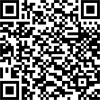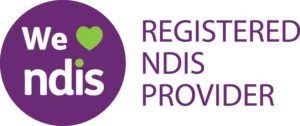What is Autism Spectrum Disorder?
Autism Spectrum Disorder (ASD) is a neurodevelopmental disorder that affects social functioning, ranging from mild to severe.
ASD is a condition that affects how the brain develops. Despite the fact that individuals with ASD have similar social communication, repetitive behaviour, and sensory issues, the symptoms and their severity vary greatly from person to person.
Early intervention, supportive therapies, and family counselling can make a huge difference to the lives of children with ASD and their parents. There is no cure for ASD, but early intervention, supportive therapies, and family counselling can make a difference.
Our multidisciplinary team offers evidence-based techniques and interventions to help children with ASD manage their symptoms and live life to their highest potential.





Autism Information
Autism can start in childhood, with symptoms appearing within the first year or between 18-24 months, even if a child appears to be developing normally.
Some common ASD behaviours and signs are:
- When you call their name, they might not answer or appear to not hear you at times.
- Prefers their own company, resists cuddles and retreats into their own world.
- Lacks facial expression and doesn’t make eye contact.
- Doesn’t speak or has delays when learning to talk.
- Can’t start a conversation or keep one going.
- Doesn’t appear to understand simple questions.
- Appears unaware of other people’s emotions and is unable to express their own.
- Inappropriate social interactions.
- Prefers to stick to a “routine” and is anxious or has a tantrum if it is changed.
- Has difficulty interpreting non-verbal cues, such as facial expressions or tone of voice.
- Difficulty regulating emotions.
- Rigid thinking.
Genetic—Genes play a role in the emergence of ASD, with genetic disorders such as Rett syndrome and Fragile X Syndrome being associated with it. Mutations can also be inherited or spontaneously occur.
Environmental—Environmental factors such as medications, pregnancy complications, vaccines, and air pollutants have been studied, but there is no definitive link between ASD and any of them.
Other risk factors for Autism include:
- Boys are four times as likely to develop the disorder than girls.
- Family history of ASD increases risk of having a child with disorder.
- ASD is associated with other medical conditions such as Fragile X, Rett syndrome, and Tuberous Sclerosis, which can lead to intellectual and physical disabilities.
- Extremely premature babies are at risk of Autism Spectrum Disorder.
- Older parents may be associated with children with ASD.
How can we help?
Direct Focus Solutions is committed to offering effective therapy and interventions for children who exhibit ASD behaviors. One of our tactics is to boost their self-esteem and give children opportunities to express themselves via learning and imaginative play. In some cases, our holistic, interdisciplinary approach to ASD therapy involves psychology, occupational therapy, and speech therapy. We also use educational methodologies to help children improve their reading, writing, and math skills, and we work with them at their own speed.
Our team of specialists provides effective Autism therapy strategies and supports to promote the best futures for people with ASD.
Call us to arrange an appointment at one of our offices in Sydney or the Illawarra. For your convenience we also offer Telehealth consultations, which may be more suitable for your current circumstances.



